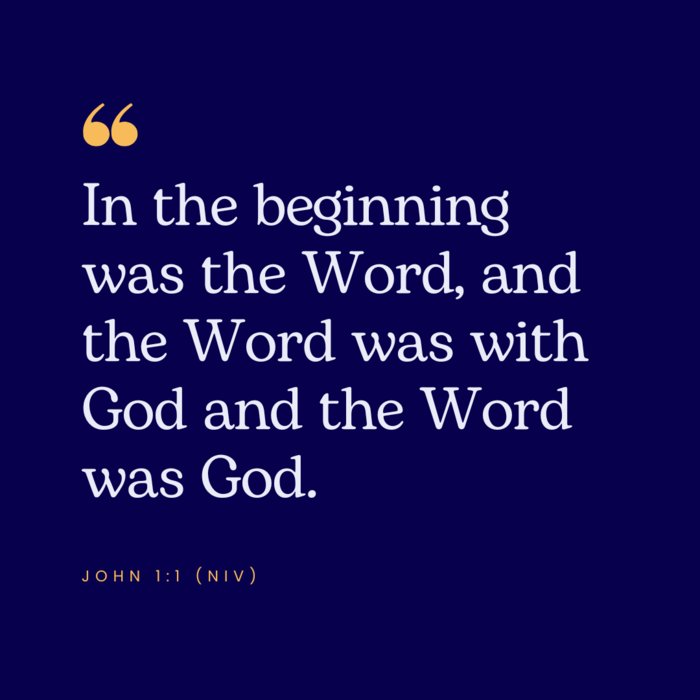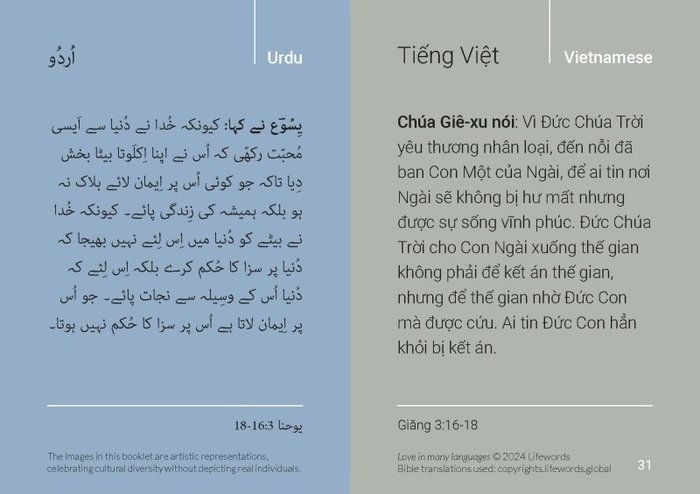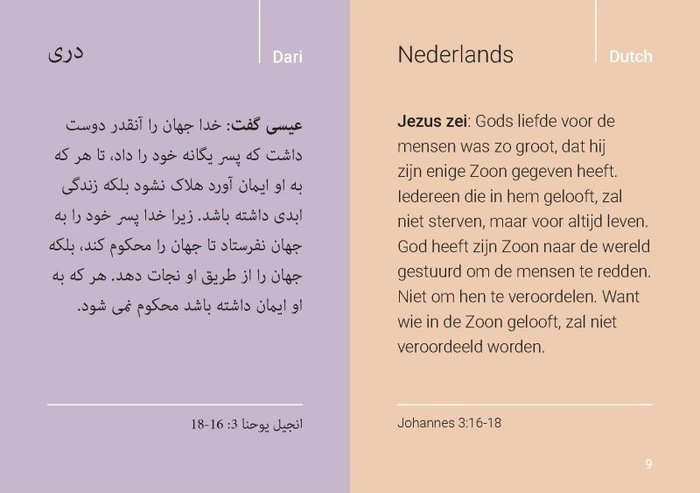In times of rapid – even tectonic – change, we often ask: How can we speak to today’s world? How can we share the Good News without becoming a museum piece – disconnected and irrelevant?
Lately, I’ve been finding fresh inspiration in the opening verse of John’s Gospel: “In the beginning was the Word, and the Word was with God, and the Word was God.” (John 1:1)
Much has been said about this passage, but I’d like to focus on something slightly different.
The Greek word logos here translates as "Word", but logos has had a long journey. “Word” is a valid and meaningful translation – but in ancient Greek thought, logos often meant something more: reason or rational principle.
That’s why we get words like biology – reasoning about bios (life), psychology – reasoning about psyche (soul) and theology – reasoning about Theos (God). For the Stoics, logos was the divine reason filling the universe – the source of order, meaning, and morality.
Philo of Alexandria – a Jewish philosopher – offered a radical reinterpretation, which prepared the ground for John 1:1. He blended Hellenistic and Jewish thought, presenting Logos as a kind of bridge between God and the world. John’s Gospel goes a step further: Logos is not just a concept. It becomes flesh. It becomes a person – Jesus.
It’s a bold and radical claim. But notice – John doesn’t make it in isolation. He speaks to the culture, using the ideas of his time. He recognises glimpses of truth in philosophies beyond his own tradition –
and uses them as a way into the Gospel.
Can we learn something from this? I believe we can. Here are three thoughts that come to mind:
First, John is not writing from a cultural bubble. He knew the ideas, questions, and language of his world – and he used them. And I think we should too. Recognising wisdom outside the Church doesn’t weaken the message – it helps us connect more meaningfully.
Second, by using familiar language and ideas, John makes the Good News easier to understand. He speaks the “language” of his culture – and maybe we’re also invited to express timeless truths in the words and images of today.
Third, John doesn’t lose focus. Despite all the layers of philosophy, the heart of the message is simple and personal: the Word – the Reason – became flesh. Not a system. Not a theory. A person. Jesus.
So what can we take from this? For me, it’s a reminder that the Gospel – from the very beginning – was not afraid of culture. It spoke to people where they were, and used ideas and language they already knew.
We can find so much in one verse - John's writing is rich with theology and truth.
In a similar way the verse featured throughout our new global resource, Love in Many Languages, holds so much meaning, and on its own communicates so much of the heart of the gospel: "For God so loved the world that he gave his one and only Son, that whoever believes in him shall not perish but have eternal life." (John 3:16)
John 3:16 speaks of God's great love for the world, the generosity, grace and closeness of God in sending his own Son, and the glorious news that if we believe in his Son we will receive eternal life.
'What do you mean this resource only has one Bible verse?' you might wonder.
Every day, Christians around the world use Lifewords resources to share the message of God's love in diverse, multicultural settings. Often this means carrying multiple booklets in a variety of languages, but now Lifewords have a created, Love in Many Languages, a brand new resource that can be used in different contexts.
Love in Many Languages is a compact pocket-sized booklet in the 50 major world languages spoken by 5 billion people, which seeks to ensure that communication is no longer a barrier to sharing good news with those who speak a different language.
More than just an outreach tool, this new resource is a snapshot of a key part of Lifewords’ mission – making Scripture accessible across cultures and languages. It’s a glimpse into a world where language is not a barrier but a bridge, connecting people through the timeless message of God's love.
Within 24 hours of the booklet’s launch, we received orders from 13 different countries and 30% of the stock had already been claimed - mostly from global cities where a variety of cultures and languages come together. Find out more on our Global Resource shop.

